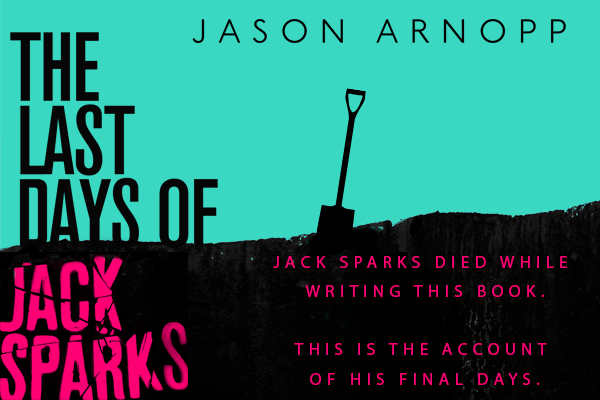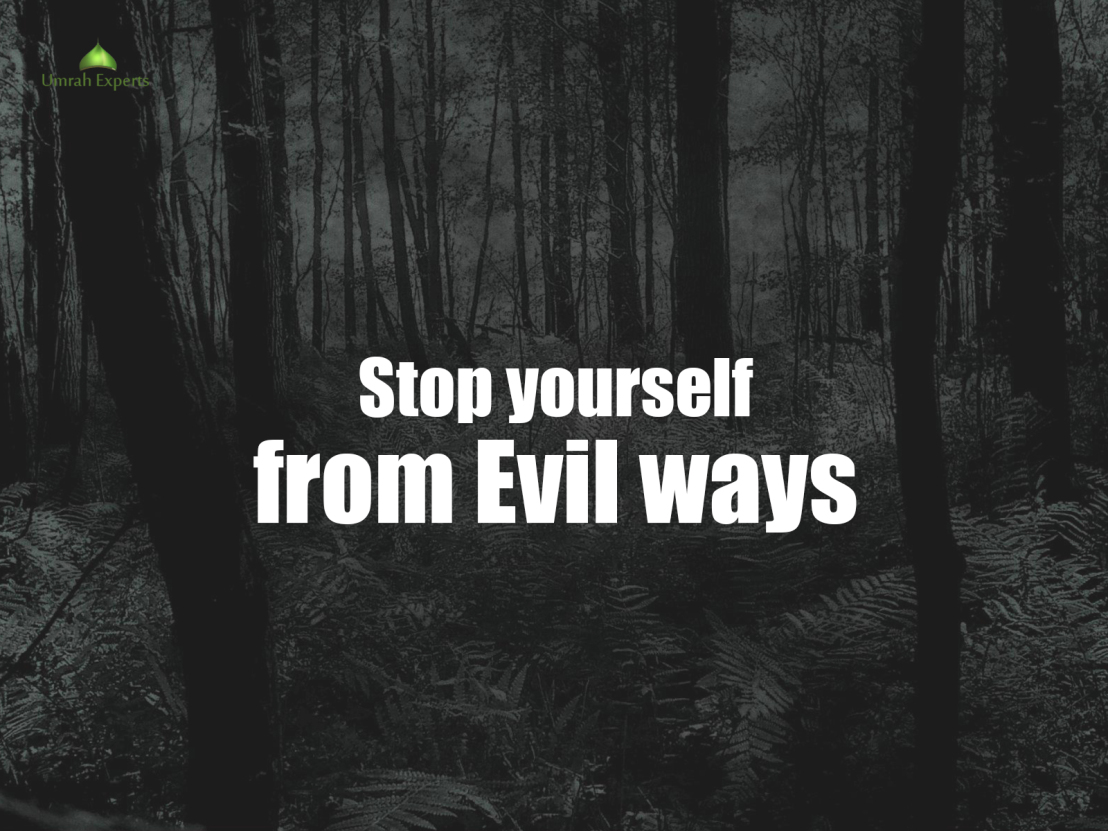…for this year’s nominees and winners of the annual FictionFan Awards of 2017.
For the benefit of new readers, and as a reminder for anyone who was around last year, here’s a quick résumé of the rules…
THE CRITERIAAll nominees must be books I’ve read and reviewed between November 2016 and October 2017 regardless of publication date, but excluding re-reads. The books must have received a 5-star rating.
THE CATEGORIESThe categories tend to change slightly each year to better reflect what I’ve been reading during the year.
This year, there will be Honourable Mentions and a Winner in each of the following categories:
Vintage Crime Fiction/Thriller Factual Modern Crime Fiction/Thriller Literary Fiction …and… Book of the Year 2017 THE PRIZES For the winners!I guarantee to read the author’s next book even if I have to buy it myself!
(NB If an author is unlikely to publish another book due to being dead, I will read a book from his/her back catalogue…)
For the runners-up!Nothing!
THE JUDGESMe!
* * * * * * * * *
So, without further ado, here are this year’s runners-up and winner in
FACTUALIn terms of numbers of books, I haven’t read as much factual as usual this year. But that’s been because of my Russian Revolution challenge – so many of those books have been massive monsters! They’ve also provided some of my best factual reads of the year, but there have been other great books too that have provided some much-needed variety along the way…
HONOURABLE MENTIONS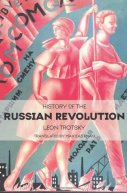 History of the Russian Revolution by Leon Trotsky
History of the Russian Revolution by Leon TrotskyWritten in three parts some years after the Revolution, Trotsky begins with a fascinating analysis of why revolutions arise, then goes on to give the historical background to the Russian one, followed by a minutely detailed, blow-by-blow account of the events of 1917 and beyond.
In terms of the writing itself, there’s a real mix. When Trotsky is detailing the more technical stuff, it can be very dry with long, convoluted sentences full of Marxist jargon, which require concentration. At other times, he is sarcastic, humorous, angry, contemptuous depending on who he’s talking about. Most of it is written in the past tense. But when he gets misty-eyed about the masses, describing a rally or demonstration or some other part of the struggle, he drifts into present tense, becoming eloquent and inspirational, writing with real power and emotionalism, and rising almost to the point of poeticism at times. These passages remind the reader that Trotsky was an observer, a participant and a passionate leader in the events he’s describing. So long as one remains firmly aware of Trotsky’s bias at all times, this is a fascinating book, not by any means an easy read, but certainly an enlightening and worthwhile one.
Click to see the full review
* * * * * * * * *
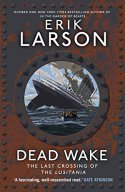 Dead Wake by Erik Larson
Dead Wake by Erik LarsonLarson tells the story of the last voyage of the Lusitania, its passengers and crew, and the wider political situation that gave rise to the circumstances in which the ship was left unprotected in waters in which it was known U-boats were operating.
Larson uses four main strands to tell the full story of what happened. We learn about the codebreakers of the British Admiralty who had obtained the German codes and were therefore able to track U-boat movements with a fair degree of accuracy. Secondly, Larson takes us aboard U-20, the U-boat that would fire the fatal torpedo, and introduces us to its Captain, Walther Schwieger. The third aspect revolves around President Wilson and America’s lengthy vacillations before finally committing to war. The fourth section, and the one that humanises the story, is of the voyage of the Lusitania itself. Larson introduces us to many of the passengers, telling us a little of their lives before the voyage, so that we come to care about them.
Larson’s excellent writing style creates the kind of tension normally associated with a novel rather than a factual book, and his careful characterisation of many of the people involved gives a human dimension that is often missing from straight histories. An excellent book, thoroughly researched and well told.
Click to see the full review
* * * * * * * * *
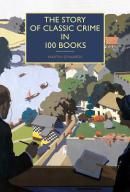 The Story of Classic Crime in 100 Books by Martin Edwards
The Story of Classic Crime in 100 Books by Martin EdwardsHere Martin Edwards, regular editor of the British Library Crime Classics series amongst many other things, looks at the rise of the crime novel and its development throughout the first half of the last century. Edwards writes knowledgeably but conversationally, so that it never feels as if one is being lectured by an expert – rather it’s like having a chat with a well-read friend. He starts each chapter with a discussion around its theme, showing how the genre and various sub-genres developed. Following these interesting introductions, he lists and discusses the books he has selected for each section. He makes it clear he doesn’t necessarily think they’re all brilliant – rather, he feels they’re either an important link in the development of the crime novel, or a good representative example of the sub-genre under discussion.
Great for anyone who’d like to know more about the history of the crime novel, or who’d like to read some of the classic books but doesn’t know quite where to begin. But equally interesting for people who already know quite a bit about the genre – it’s so packed with goodies I can’t imagine many people wouldn’t learn something from it as well as being entertained by some of the stories about the authors.
Click to see the full review
* * * * * * * * *
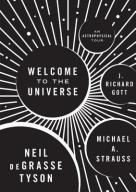 Welcome to the Universe by Neil deGrasse Tyson, Michael A. Strauss and J. Richard Gott
Welcome to the Universe by Neil deGrasse Tyson, Michael A. Strauss and J. Richard Gott
This book arises from a course on the universe run by the three authors at Princeton University for non-science majors; indeed, for students who perhaps had never taken a science course before. As someone with almost no knowledge of science, it seems to me it is indeed suitable for a beginner so long as s/he has an enquiring mind and either the ability to understand the maths or the willingness to skim over those bits that are maths-heavy.
The book is divided into three sections, each written mainly by one of the authors with the occasional contribution from one of the others. Tyson takes us through how scientists learned to measure distances between stars, how they work out their composition and age, and goes into considerable depth on the lifecycles of stars. Strauss takes the reader through the story of galaxies, from how our own was first mapped to the discovery that (almost) all galaxies are moving away from each other, proving that the universe is expanding and enabling scientists to estimate its age and speculate as to its future. The final section is by Richard Gott and takes us from Einstein’s relativity back to the Big Bang and beyond, finishing with some speculation about the beginnings of the universe and even what may have come before the Big Bang. A great book, managing to be both hugely informative and entertaining – undoubtedly the best and most comprehensive of its kind that I’ve come across.
Click to see the full review
* * * * * * * * *
FICTIONFAN AWARD WINNER 2017 for BEST FACTUAL BOOK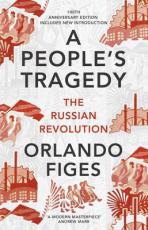
Given my submersion in the Russian Revolution this year, it will be no surprise that this outstanding history wins the award.
In order to tell the story of the Russian Revolution, Figes begins three decades earlier, in 1891, with the famine that could be seen as starting the journey towards revolution; and continues up to 1924, the year that the first dictator, Lenin, died. This is a huge work, massive in scope, meticulously researched and delivered with a level of clarity that makes it surprisingly easy to read and absorb, even for someone coming to the subject with no previous knowledge.
It’s divided into four sections that thoroughly cover each period: when revolutionary ideas were still in their infancy, before and during the Romanov period; the period from 1891 to just before the revolution proper began; the revolutionary year from February 1917 to the signing of the peace of Brest-Litovsk in March 1918; and finally, the complex tale of the Civil War that followed the revolution. Figes ranges widely, often using the stories of individuals to add a human face to the political history.
Brilliantly written, well laid out and lavishly illustrated, making it easy to read and understand despite the immense complexity of the subject, it’s an exemplary mix of the political, the social and the personal, so that I came away from it understanding not just the politics and timeline of events, but how it must have felt to have lived through them. An exceptional book – one of the best broad scope histories I’ve read and a worthy winner!
Click to see the full review
* * * * * * * * *
Next week: Best Modern Crime Fiction/ThrillerPlease feel free to share this:
- More

